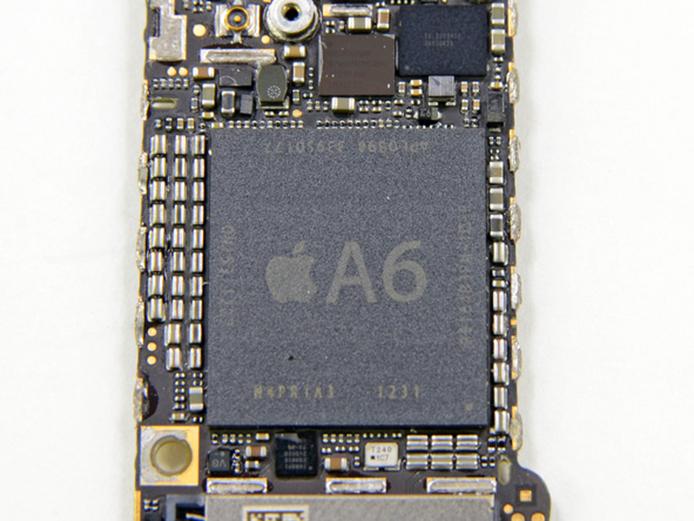A report on Thursday claims inside knowledge of reported negotiations between Apple and Intel, saying the chip maker may be looking to build ARM-based SoCs based for the Cupertino company's iOS device lineup.
Citing a person familiar with one of the tech giants, Reuters reported that executives have over the past year discussed a possible partnership in which Intel's foundries would be used to manufacture Apple-designed chips. A deal has not yet been reached, the source said.
This is not the first time rumors of an Apple-Intel partnership have cropped up. A report from May 2011 suggested that Intel showed interest in building Apple's A4 and A5 SoCs, though no action was taken and the idea was apparently shelved as the so-called Ultrabook initiative gained momentum.
Intel is supposedly looking to shift its strategy as PC sales continue to slump as mobile devices, led by tablets like Apple's iPad, continue to gobble up marketshare. The firm has been looking to expand its foundry business, most recently agreeing to fabricate silicon based on technology from chip maker Altera.
While an agreement to start production of ARM SoCs would likely undercut adoption of Intel's own Atom mobile processor, the move might be necessary to keep pace with a quickly changing market. The report also speculates that Intel's replacement for CEO Paul Otellini, who plans to retire in May, may further diversify the company's contract operations in a bid to keep manufacturing facilities working at full capacity.
As for Apple, a move to Intel is easier to imagine, as the Mac lineup already runs on x86 processors. It has also been rumored that the company wants to distance itself from current A-series SoC manufacturer Samsung, with which it is ensnarled in a worldwide patent struggle. The Korean electronics giant is also Apple's biggest competition in the mobile marketplace, with a variety of Android-based devices going jockeying for position against iOS products like the iPhone and iPad.
 AppleInsider Staff
AppleInsider Staff








 Charles Martin
Charles Martin
 Christine McKee
Christine McKee
 Wesley Hilliard
Wesley Hilliard
 Malcolm Owen
Malcolm Owen
 Andrew Orr
Andrew Orr
 William Gallagher
William Gallagher
 Sponsored Content
Sponsored Content








69 Comments
Head to head? You got to be kidding me.
Interesting.. Intel stopped making their own PC motherboards recently.. They will still produce reference designs apparently, but it's obvious they are shifting strategy. Could be a win-win for both parties.
Intel is going to become a large-scale ARM licensee? Really?
Intel's market cap is 1.07 billion. Just saying.
Made In USA
That would be awesome.
Go Apple, go go go...